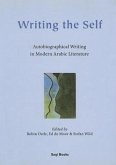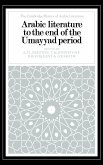This book challenges the assumption that men write of war, women of the hearth. The Lebanese war has seen the publication of many more works of fiction by women than by men. Miriam Cooke has termed these women the Beirut Decentrists, as they are decentred or excluded from both literary canon and social discourse. Although they may not share religious or political affiliation, they do share a perspective, which holds them together. The author traces the transformation in consciousness that has taken place among women who observed and recorded the progress towards chaos in Lebanon. During the so-called 'two-year' war of 1975-6 little comment was made about those (usually men in search of economic security) who left the saturnalia of violence, but with time attitudes changed. Women became aware that they had stayed out of a sense of responsibility for others and that they had survived. Consciousness of survival was catalytic: the Beirut Decentrists began to describe a society that had gone beyond the masculinisation normal in most wars and achieved an almost unprecedented fernininisation. Emigration, the expected behaviour for men before 1975, was rejected. Staying, the expected behaviour for women before 1975, became the sine qua non for Lebanese citizenship. The writings of the Beirut Decentrists offer hope of a way out of the anarchy. If men and women could espouse the Lebanese women's sense of responsibility, the energy that had fuelled the unrelenting savagery could be turned to reconstruction. But that was before the invasion of 1982.
Table of contents:
Acknowledgements; Introduction; Part I. A Different Experience: 1. Danse macabre; 2. The need for a myth; 3. In a new voice; Part II. A Different Expression: 4. Women's voices in Arabic literature; 5. Responsibility; Part III. A New Consciousness: 6. Then I would like to resurrect; 7. Flight against time; Conclusion; Notes; Bibliography; Index.
Hinweis: Dieser Artikel kann nur an eine deutsche Lieferadresse ausgeliefert werden.
Table of contents:
Acknowledgements; Introduction; Part I. A Different Experience: 1. Danse macabre; 2. The need for a myth; 3. In a new voice; Part II. A Different Expression: 4. Women's voices in Arabic literature; 5. Responsibility; Part III. A New Consciousness: 6. Then I would like to resurrect; 7. Flight against time; Conclusion; Notes; Bibliography; Index.
Hinweis: Dieser Artikel kann nur an eine deutsche Lieferadresse ausgeliefert werden.








